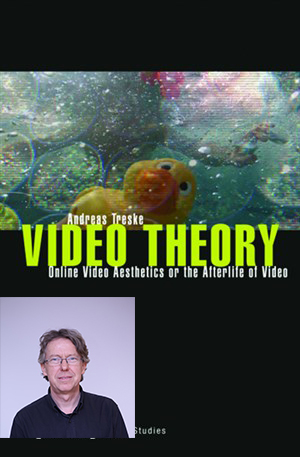Author, filmmaker, and media artist Andreas Treske, assistant professor in the Department of Communication and Design, has recently published a new book, “Video Theory: Online Video Aesthetics, or the Afterlife of Video.”
The publisher’s review details the significance of the work, noting that “video is a part of everyday life, comparable to driving a car or taking a shower. It is nearly omnipresent, available on demand.” Because cameras all around us are constantly creating video and “uploading, sharing, linking and relating,” what the reviewer calls “an ocean of video” has come to cover our planet. Although this ocean might look like “bluish noise and dust” from far away, it may in fact “embed beautiful and fascinating living scapes of moving images: objects constantly changing, re-arranging, assembling, evolving, collapsing but never disappearing—a real cinema.” In the book, the author “describes and theorizes these objects formerly named video, their forms, behaviours and properties.”
Mr. Treske is a graduate of the University of Television and Film in Munich, where he also taught film and video postproduction. He is a member of the video vortex network and corresponding member of CILECT, the world association of film schools.

